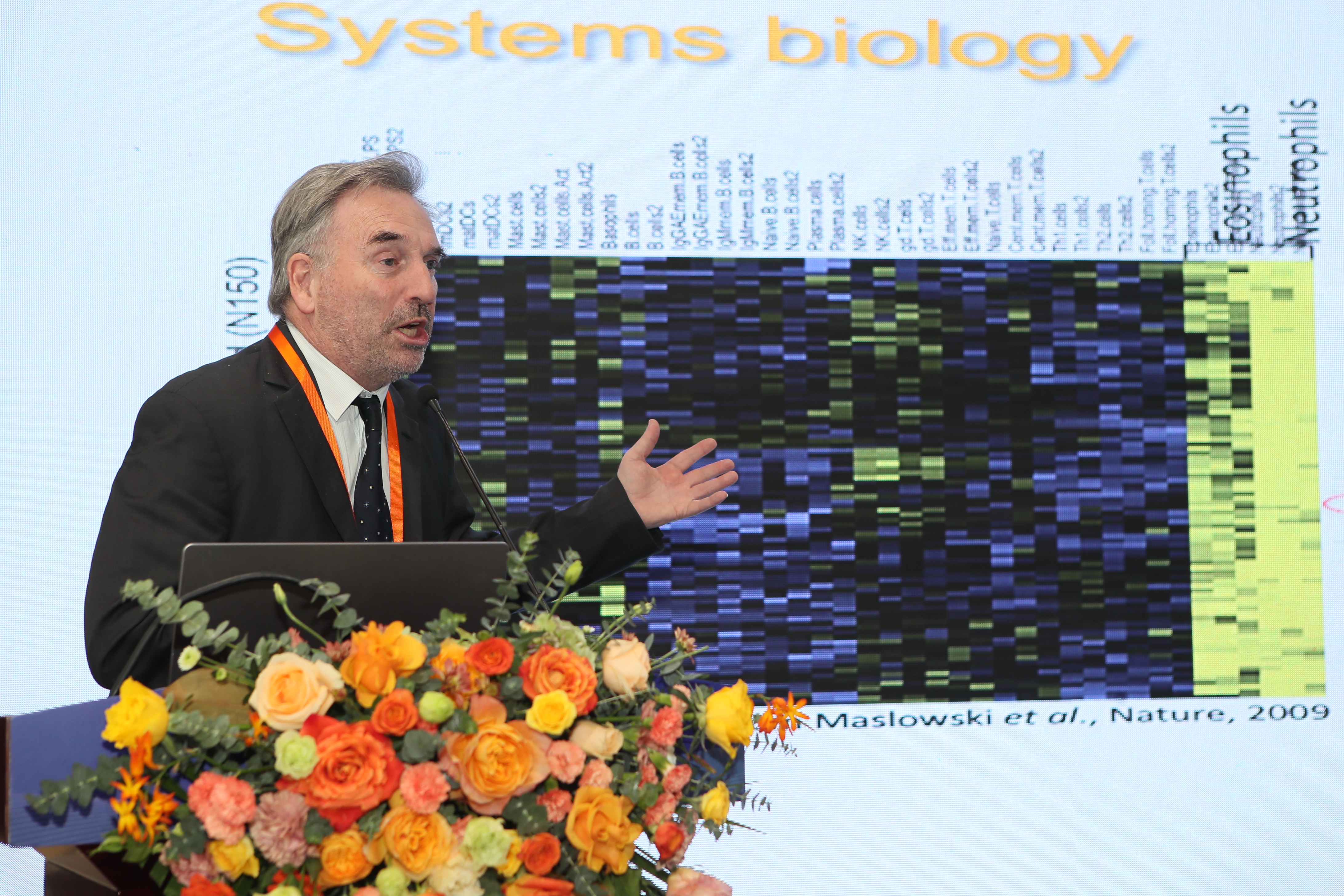Collaboration With China for Improving Human Health

Adjunct Professor Charles Mackay. (COURTESY PHOTO)
By?BI?Weizi?and?LONG?Yun
Charles Mackay, who received his PhD from the University of Melbourne, Australia in 1987 and is now an Adjunct Professor at Monash University, was elected as a member of the Australian Academy of Sciences in 2009, and was appointed as the Distinguished Chief Expert of Qilu University of Technology (Shandong Academy of Sciences) in 2017.
Mackay is accomplished in the fields of inflammation, GPCR biology, immune cell migration and cytokine, actively advocating a new hypothesis to explain many "Western lifestyle" diseases that are caused by diet, gut microbes and their metabolites. He's been committed to a new diet approach for the prevention and treatment of many human diseases.
Talent hub
In 2016, under the invitation of Shandong Academy of Sciences, Mackay came to China. "I found China to be on a [fast] speed of development, so many things are happening [such as] new airports, new high-speed trains," he said, adding that science is also developing fast in China and an increasing number of Chinese scientists are publishing more papers in top journals.
"They're smart and work hard, which are basic elements for good research. They've come from a position behind to now suddenly be in position of strength. World-renowned results have been achieved here," he said about his research team in Shandong Academy of Sciences, noting that he is very optimistic about science in China.
Diet approach making a difference
As an eminent immunologist, Mackay is exploring an exciting new concept — that nutrition and the gut microbiome have profound influences on physiology, particularly immune responses. He demonstrated that dietary fibre and its breakdown fermented products, the short chain fatty acids (SCFAs) influence gut homeostasis, the composition of the gut microbiota, immune tolerance and inflammatory responses.
"Nutrition controls biology, particularly immune responses. We know that the metabolites, the small molecules derived from food, can bind receptors like GPCR, which has major effects on immunology and physiology," he said, adding that the connection explains things like diabetes and cardiovascular diseases, which affected millions of people around the world.
Mackay believes in the potential to manipulate immune responses using "medicinal foods." He is developing new diets that release very high amounts of beneficial SCFAs in the gastrointestinal tract, hoping to exert the huge impact on human health. However, it is very challenging to translate academic research into therapeutic advancement. "As an academic scientist, I understand immune dysregulation is the main cause of many western lifestyle diseases. The main fundamental research was usually done in mice, as mice and humans share same or similar immune receptors and pathway. Then we have to think how to make a therapy for humans," he said. His team has already made some progress for human clinical trials in Australia, but seeking financial support and making materials more suitable for human use still need strenuous efforts.
Having weighed up the pros and cons, Mackay decided to come to Shandong to translate his research findings into real benefits for people. "Firstly, Shandong is absolutely committed to innovative research, which is half the battle [won]. Also China has patience for us, which we don't have in Australia," he said, believing that his team is quite close to developing drugs that can be used on patients.
Mackay expressed his hope for the future, growing the lab, conducting clinical trials in China, making a difference to medicine and helping millions of people. "We're very optimistic. We think we're gonna change medicine, [and] we've got something better than a drug, which is effective and safe for treating diseases," he said.
This article is also contributed by Shandong Analysis and Test Center.







